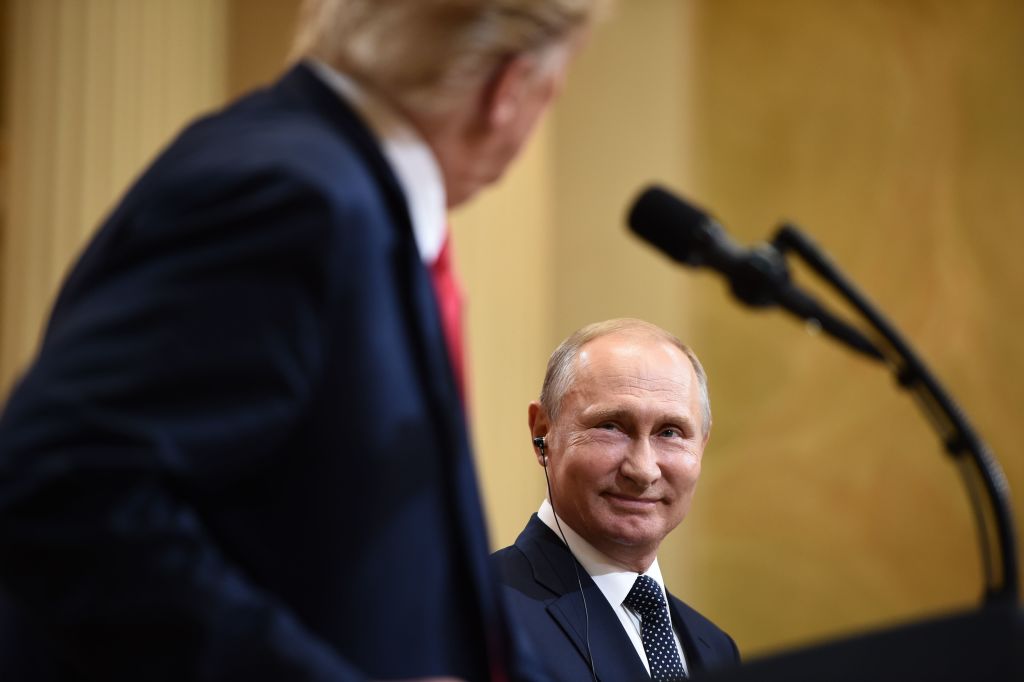Donald Trump is, perhaps predictably enough, pulling out of the World Health’s Organisation’s global vaccine programme. The Russian president Vladimir Putin has been cutting every corner to get a Russian shot out first, while allegedly sending spies to steal the Oxford one. And China is racing to have the first vaccine on the market, already trying one out on the military, and allegedly hacking the US company Moderna. As the Covid-19 crisis drags out, ‘vaccine nationalism’ is rampant.
Everyone from the WHO to the European Union to the United Nations solemnly condemns that. We all have to work together to find a vaccine, and then distribute it fairly, we keep being told. Countries shouldn’t take short cuts, they shouldn’t indulge in great power politics, and they certainly shouldn’t try and use a vaccine for political ends or to bolster national prestige. If ever a crisis required global co-operation, and sharing knowledge and resources, it is surely this one? The vaccine nationalists risk hurting all of us.
But hold on. Is that really true? Of course, you can make almost anything sound bad by attaching the word nationalism to it (try it after dinner and a few glasses of wine sometime). And yet some great power rivalry over a vaccine for Covid-19 will benefit all of us. Why? Because it will spur competition to create a shot more quickly, and that will make sure resources are thrown at it.
The US may not be co-operating with the WHO programme but its ‘Operation Warp Speed’ could yet turn into the 21st-century equivalent of the Manhattan Project that developed nuclear power during World War II. Putin’s Sputnik vaccine may involve some childish breast-beating, but its name is also a reminder that one of the great scientific achievements of the 20th century – the exploration of space – was also driven by great power rivalry. If China wants to announce its arrival as a major global power by getting the first Covid shot onto the market then what exactly is the problem? Its motives may not be pure, but we’d still surely still like the inoculation.
In truth, competition between nations has, historically, often driven innovation. That was certainly true of the Cold War space race. Or the scientific breakthroughs – from radar to rockets – of WWII. Innovation doesn’t usually happen by itself. It takes money, resources, goals, organisation, and pressure. When national prestige is at stake all of those are a lot more likely to be forthcoming. And right now, we need some rapid innovation. With the global economy in crisis, we don’t want to wait three or four years for an effective vaccine. If possible, we want one this year.
True, Russia, China, or the US, might take short cuts on safety. But that’s up to them, and if it works we still benefit (and if it doesn’t we don’t have to take the shot). It seems very unlikely those countries will be able to prevent anyone else getting the vaccine even if they want to (and it is hard to understand what possible benefit there would be in restricting access to it). A vaccine is just a piece of knowledge. There are some practical limits to its production, but they will be relatively minor, and solved quite quickly. No country could hope to keep the formula secret for long even if it wanted to: in the Cold War the West couldn’t even keep the technology for making nuclear weapons secret.
For all the slightly po-faced condemnations, there is nothing wrong with countries rushing to get a vaccine first. In fact, the more ruthless the competition the better – because that is usually what gets results.






Comments